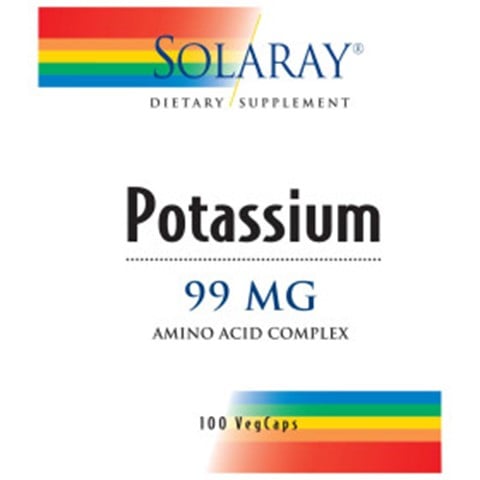The Importance of Potassium
Maintaining potassium level may be overlooked and it is considered to be not so important but you can’t be more wrong. Maintaining adequate potassium levels is essential for your body to function optimally.
Potassium, which is one of the vital minerals that our body requires, plays a crucial role in various physiological processes. From regulating heart rhythm to supporting muscle contractions and nerve function. Some doctors do say that this mineral is a true unsung hero. However, even after being an unsung hero, it’s common for many individuals to experience low potassium levels without even realizing it.
In medical term low potassium is also known as hypokalemia, It can manifest various symptoms and sign that is overlooked by the mass populace or misjudged for something other. But fear not, as Cura360 is here to guide you through the sign that indicates you’ve low potassium levels.
What is Potassium and What Does It Do?
Potassium is an essential mineral for humans that plays a vital role in various bodily functions. It is an electrolyte that helps maintain proper fluid balance, conduct nerve impulses, regulate muscle contractions (including the heart), and support healthy blood pressure levels. Potassium also plays a part in carbohydrate metabolism, protein synthesis, and the maintenance of pH balance in the body. In short, potassium is crucial for the overall functioning of our cells, tissues, and organs, making it an indispensable nutrient for human health.
Now that you understand the importance of potassium minerals in humans you may easily understand why it’s necessary to maintain adequate potassium levels if you still think it’s not as important as people say let’s take a look at the benefits and if you do change you mind about this unsung hero.
Benefits of Healthy Potassium Level
- Regulates Blood Pressure: Potassium helps maintain healthy blood pressure levels by counteracting the effects of sodium, promoting proper dilation and relaxation of blood vessels. Adequate potassium intake has been associated with a reduced risk of hypertension and related cardiovascular diseases.
- Supports Heart Health: Potassium plays a crucial role in maintaining a regular heartbeat and proper electrical functioning of the heart. It aids in conducting nerve impulses, ensuring the heart muscles contract and relax rhythmically.
- Enhances Muscle Function: Potassium is essential for normal muscle function, including skeletal muscles and smooth muscles found in the digestive tract. It facilitates muscle contractions, allowing smooth movements, preventing cramping, and improving overall physical performance.
- Facilitates Nervous System Function: Potassium is involved in transmitting nerve impulses throughout the body. It helps maintain proper communication between the brain and other parts of the nervous system, supporting cognitive function, memory, and overall neurological health.
- Promotes Bone Health: Adequate potassium intake has been associated with improved bone density and a lower risk of osteoporosis. It helps neutralize the acid load in the body, which can otherwise lead to the leaching of calcium from bones.
- Aids in Kidney Function: Potassium plays a role in maintaining kidney health by assisting in the filtration of waste products and balancing fluid levels. It helps prevent the formation of kidney stones and supports overall kidney function.
- Supports Electrolyte Balance: Potassium, along with other electrolytes, maintains the balance of fluids inside and outside cells. This balance is essential for optimal cellular function, nerve signaling, and maintaining hydration.
Symptoms of Low Potassium Level
When potassium levels dip below the optimal range, it can lead to a condition known as hypokalemia. Recognizing the symptoms of low potassium is crucial for timely intervention.
- Muscle Weakness and Cramps: One of the early signs of low potassium is muscle weakness or fatigue. You may experience difficulty in performing everyday tasks and notice a decrease in muscle strength. Additionally, muscle cramps, especially in the legs or feet, can occur frequently.
- Fatigue and General Weakness: Low potassium levels can contribute to overall fatigue and weakness. You may feel unusually tired, lacking energy, and find it challenging to engage in physical activities.
- Irregular Heartbeat: Potassium plays a critical role in maintaining a regular heart rhythm. When potassium levels are low, you may experience palpitations, skipped beats, or an irregular heartbeat (arrhythmia). These symptoms require immediate medical attention.
- Tingling Sensations and Numbness: Hypokalemia can cause abnormal sensations like tingling, numbness, or a “pins and needles” feeling in the extremities, such as the hands, arms, legs, or feet. This occurs due to disruptions in nerve function caused by low potassium levels.
- Digestive Issues: Low potassium can affect the digestive system, leading to symptoms like constipation, bloating, and abdominal cramping.
- Increased Blood Pressure: In some cases, low potassium levels can lead to a temporary rise in blood pressure. If you have a history of hypertension, it’s important to monitor your potassium levels regularly.
- Increased Urination and Excessive Thirst: Low potassium can disrupt the balance of fluids in the body, leading to increased urine output (polyuria) and persistent thirst (polydipsia).
It’s important to note that these symptoms can vary in intensity and may be indicative of other conditions as well. If you suspect low potassium levels or experience any of these symptoms, it is advisable to consult a healthcare professional for proper diagnosis and appropriate treatment.
Supplements to Increase Your Potassium Levels

Potassium 99
If you’ve trouble maintaining an adequate potassium level by now you must have learned the importance of potassium. So taking a potassium 99mg supplement can be the right thing for several reasons. Potassium is an essential mineral that plays an important function in bodily functions as it helps in regulating blood pressure, support heart health, and aid in proper nerve and muscle function. However, many individuals do struggle to meet their daily potassium requirement through diet alone and in that case, the potassium 99 supplement can help you bridge this gap.
Conclusion – Take Charge of Your Potassium Intake:
Being aware of the signs that indicate low potassium levels is crucial for maintaining optimal health and well-being. While the symptoms of low potassium can be subtle and easily overlooked, recognizing them can help you take proactive steps toward addressing any potential deficiencies. Muscle weakness and cramps, fatigue, irregular heartbeat, tingling sensations, digestive issues, and mood changes are some of the signs that may point to low potassium levels. If you experience any of these symptoms or suspect a potassium imbalance, it’s important to consult with a healthcare professional for proper diagnosis and guidance.
So, take charge of your health today and explore Cura360 Vitamin & Supplements Section. Consult with your healthcare professional and start your journey toward becoming better and a healthy you. Visit Cura360 for useful product information & photos of Vitamins & Supplements. At Cura360, we are waiting to help you make the perfect decision regarding your health.
Send us a message in our chat box, and we will get back to you ASAP. You can also request a call back by clicking on the “call back” button or calling us at 1-833-207-3433.

 1-833-207-3433
1-833-207-3433
